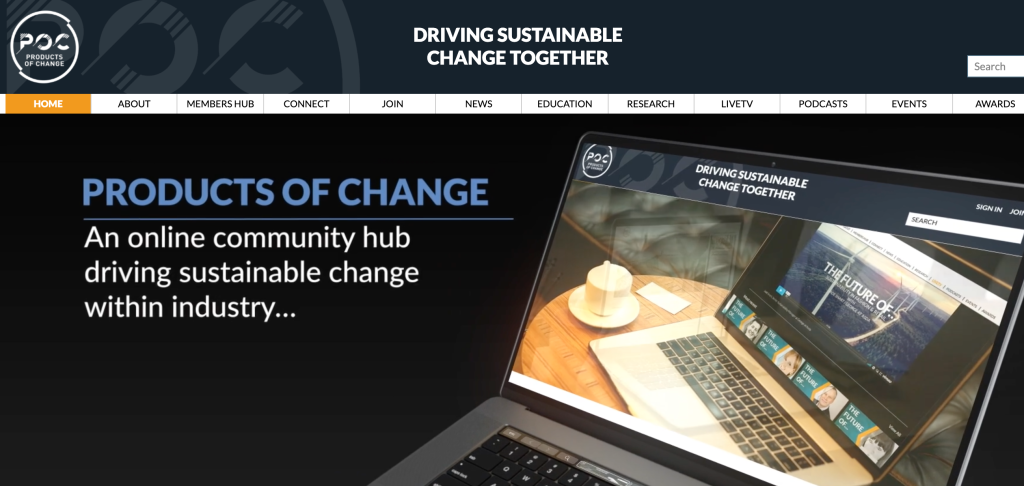It was not just up in Glasgow that addressing climate change was been discussed at a high level.
Coming up with greeting card upcycling initiatives, driving for quality recycled paper pulp to be made in the UK, the hurdles faced in redirecting waste and excess cards as well as making it easier for greeting card publishers and retailers to be account of their carbon footprint, were just some of the topics covered at the inaugural Products of Change Cardies Green Team meeting two days ago (10 November) at an online gathering.
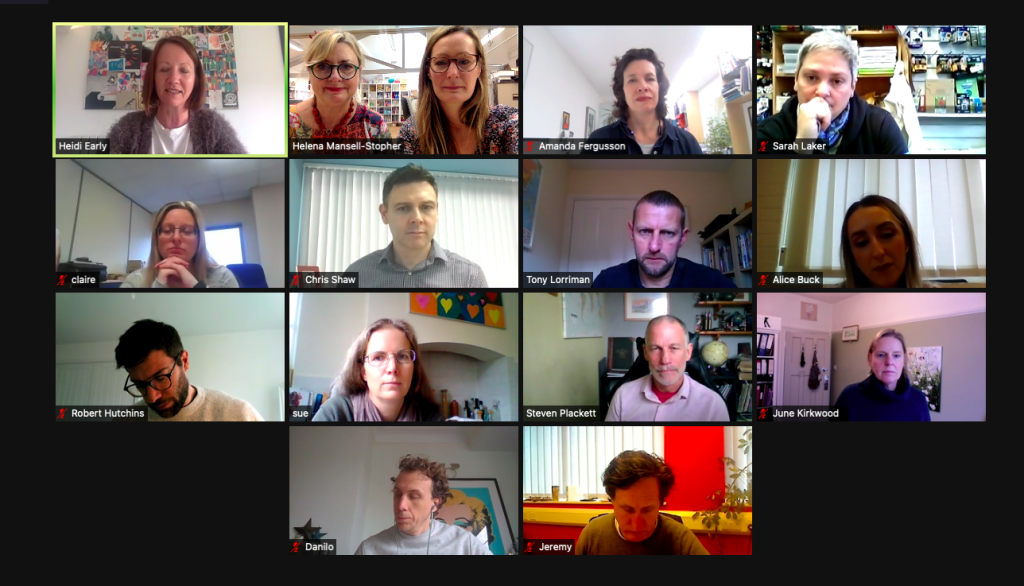
“The greeting card industry has made great progress on the sustainable front, but there so many more opportunities. By working together, learning from each other and those in old fields, we can achieve so much more,” said Helena Mansell-Stopher, the founder and ceo of Products of Change, who had just returned from attending COP26.
While hosted by Products of Change (the membership organisation committed to sustainable change), the meeting was spearheaded by Heidi Early, the co-founder of Earlybird Designs, the London-based independent greeting card retailer and publisher. Among those who attended were Claire Bates (Danilo), Jakki Brown (PG), Alice Buck (Loxleys), Jeremy Corner (Blue Eyed Sun), Dan Grant (Danilo), Amanda Fergusson (GCA), Rob Hutchins (POC), Julie Kirkwood (POC advisor); Sarah Laker (Stationery Supplies), Tony Lorriman (Loxleys), Helena Mansell Stopher (Products of Change), Sue Morrish (The Eco-friendly Card Co), Steve Plackett (Carousel Calendars); Chris Shaw (UKG) and Alison Solnik (Roger la Borde).
Earlybird Designs’ Heidi Early kicked off the meeting with emphatic speech on the importance of taking climate change action now.
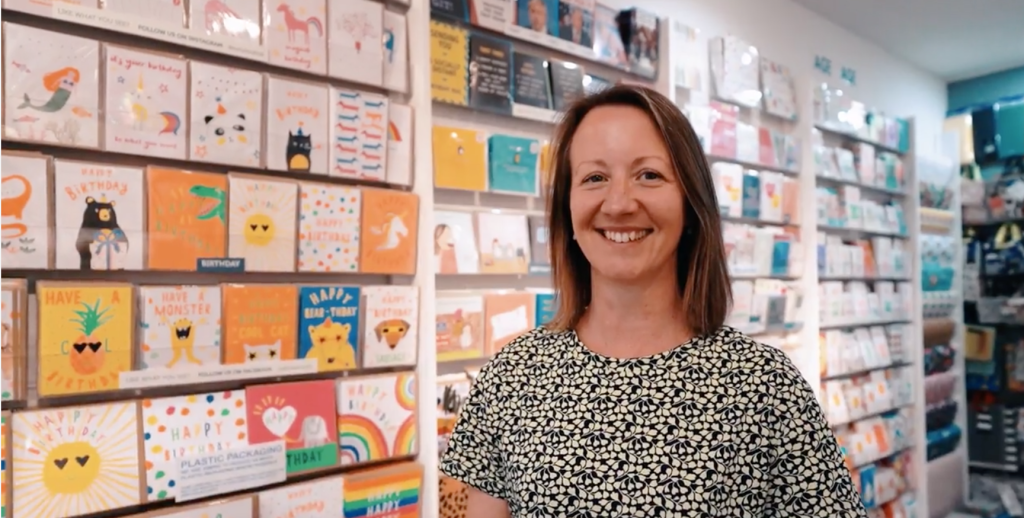
“I don’t want my customers to question why they are buying greeting cards. We need to find ways not just for people to recycle their greeting cards, but to upcycle them too,” urged Heidi.
It was Sue Morrish of The Eco-friendly Card Co who highlighted a key issue surrounding the UK greeting’s sector recycling systems, noting that “the carbon footprint of recycled pulp is still a cause for concern, seeing as it is all currently imported from the EU. “This is a high-level, government level issue, and I think it is worthwhile trying to put pressure on that,” Sue urged during the meeting. “There’s an issue that everyone that recycles their card in the UK, sees it turned into toilet roll and newsprint. That should be at the end of the cycle, not right at the start. There needs to be pressure put on the government to address this and bring the production of high quality pulp to the UK.”
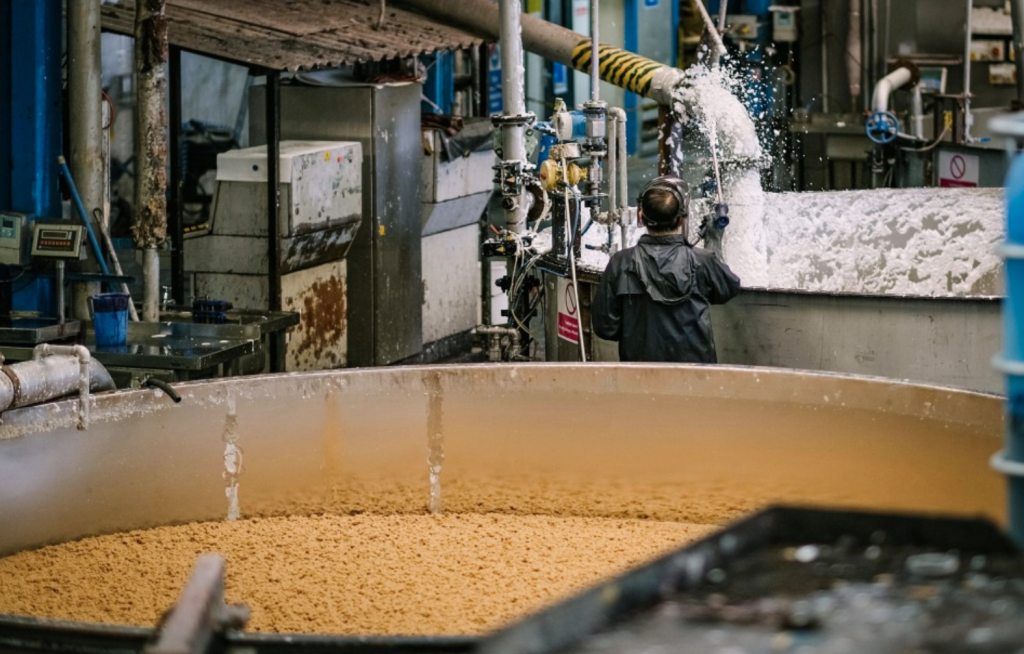
As it stands, paper mills in the UK in the business of making recycled paper are doing so using imported high quality pulp. The majority of this, stated Morrish, is coming from the EU if not other countries from across the globe, leaving a sizeable carbon footprint in its wake.
James Cropper, the independent paper mill situated in the Lake District, which has rightfully applauded for its paper recycling here in the UK, including making a paper which includes recycled coffee cups, was deemed a good starting point to discuss improvements.

“We’re in the process of moving to use recycled board for our card making process,” added Earlybird Designs’ founder, Heidi Early. “And yes, it is a concern that high quality pulp has to be imported from Europe, and particularly in the wake of the supply chain crisis, this seems like something that should be happening on a local level here in the UK.”
Away from recycling and questions were raised over accessible methods of upcycling and reusing waste and excess stock with notable suggestions of looking towards working with the UK’s food banks, possibly prisons and local communities in order to come up for new methods of prolonging the life of a greeting card by upcycling.
The meeting was bookended with presentations from Danilo’s marketing manager Claire Bates and Carousel’s managing director Steve Packett who each updated the group on the advances each have implemented in recent months as well as its ongoing search for new more sustainable materials, such as ‘cellowrap’ made out of seaweed.
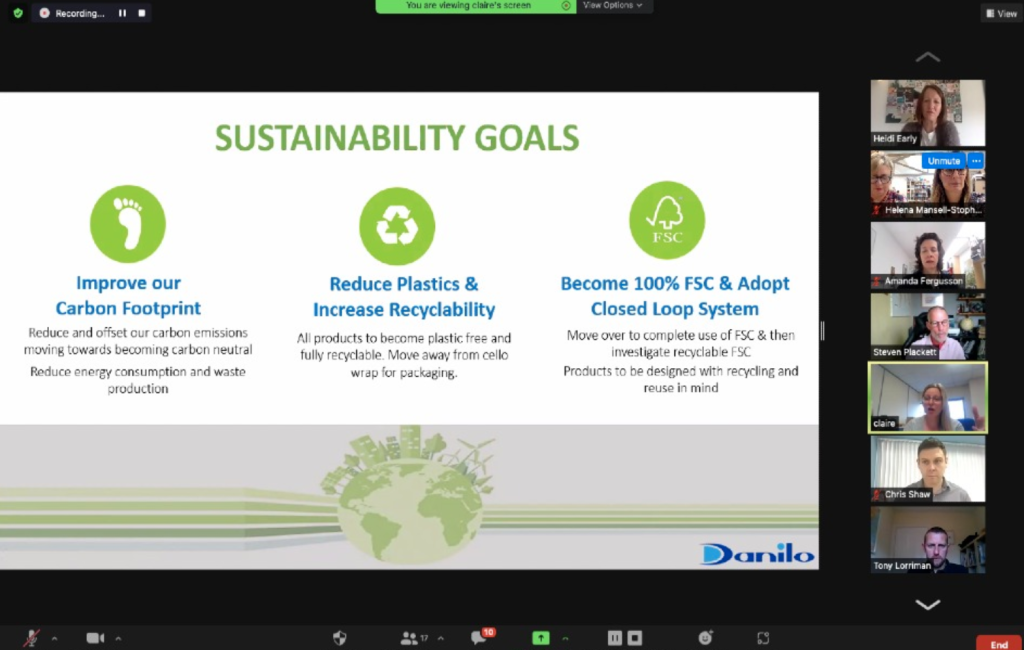
As well as detailing the company’s sustainability goals, Claire revealed Danilo’s current look into how it can reduce its carbon footprint as well as offset its direct carbon emissions. The company has outlined plans to also address its indirect carbon emissions and work with its partners and suppliers towards reducing them. As of this year, 75% of all of Danilo’s product is now produced in the UK, up from 60% in 2016, with 95% of its greeting cards made in the UK. In a reflection of the apparent collaborative approach towards sustainability from the greeting sector, Danilo also highlighted the close working partnership it has struck up with Carousel Calendars to find plastic-free packaging solutions for calendars.
This discussion ended with Carousel Calendars’ Steve Plackett detailing the company’s own findings in the search for reducing its carbon footprint and its current exploration of the Science Based Targets Initiative.
Amanda Fergusson, ceo of the GCA, highlighted how, having already worked with POC on a blog post about the imminent Plastic Packaging Tax that comes into effect next April, will be building on this with other blog posts with invaluable information on sustainability.
With a follow up meeting to be scheduled for the new year, Heidi summed up: “The will is very much there, but it can be overwhelming. We need to look at how we can make things easier for small independent publishers and retailers on the sustainable front.”
Belly Button Designs, Carousel Calendars, Cath Tate Cards, Danilo and Out of the Blue Studios/Into the Green Publishing are members of Products of Change. To find out more, click here.
The GCA blog on the Plastics Packaging Tax can be accessed by clicking here.
